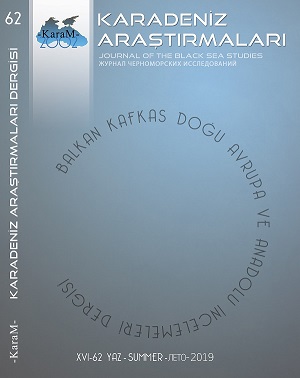Lütfi Paşa’nın Asafname’si Üzerine İktidarın Denetimi Bağlamında Söylem Çözümlemesi
Discourse Anaylysis On Supervision Of The Power In Lutfi Pasha’s Asafname
Author(s): İnan GümüşSubject(s): Studies of Literature, Structuralism and Post-Structuralism, 15th Century, 16th Century, The Ottoman Empire, Theory of Literature
Published by: Karadeniz Araştırmaları Merkezi
Keywords: Asafname; siyasatnama; supervision; power; discourse;
Summary/Abstract: Siyasatnama is a literary type that is written on the corruptions and chaos in the order of the states and societies. In this regard, the writing of siyasatnama is observed to increase in the breaking point of the states and societies. Therefore, the siyasatnama should be evaluated not only in terms of the works consisting of advice and recommendations to the government leaders, but also the functional aspects and ability to find a solution for the major matters in the states and societies. The function of finding a solution depends on the siyasetnama. While certain siyasatnama function as reform books by determining the matters with the feature of directly providing solution, other siyasatnama also emphasizes the aspect to find a solution and to utter indirectly with the theoretical knowledge, and stories and anecdotes sophisticated advice. Since Lütfi Pasha worked as a grand vizier in 16th century, he chose to write siyasatnama in order to find solutions and to hinder the matters by observing closely the administrative and social matters. On the purpose of advising his following leaders and removing the troubles seen in the state government and society, he wrote his work called Asafname. In the research, supervision matter, one of the ways used by the power to achieve legitimacy, will be dealt referring to Asafname within the scope attached to the power conception systematized by Michel Foucault, and the functioning of supervision will be examined in terms of an approach problematizing the power phenomenon by using discourse analysis.
Journal: Karadeniz Araştırmaları
- Issue Year: 2019
- Issue No: 62
- Page Range: 284-299
- Page Count: 16
- Language: Turkish

